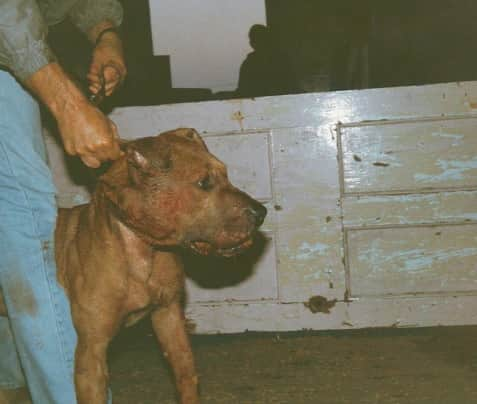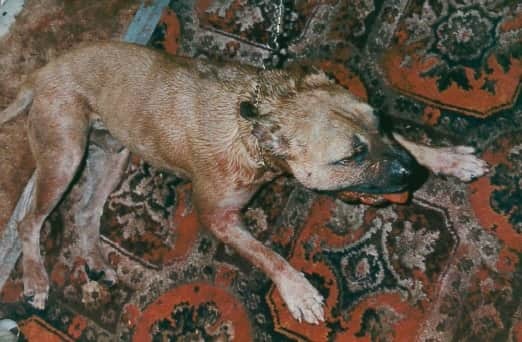West Midlands revealed as dog fighting hotspot by RSPCA
and live on Freeview channel 276
Fifty nine cases of dog fighting were tackled by the RSPCA since 2019 in the West Midlands.
In total the RSPCA’s Special Operations Unit (SOU) have investigated 1,156 incidents of dog fighting across England and Wales since 2019. London has been revealed as the worst hotspot for dog fighting with 91, Greater Manchester (82 investigations), West Yorkshire (69 investigations) and the West Midlands (59 incidents), and Lancashire (56) following closely behind.
Advertisement
Hide AdAdvertisement
Hide AdDog fighting was outlawed in England in 1835 but still goes on today. The RSPCA - founded almost 200 years ago - is the country’s leading organisation tackling dog fighting and, for the last four decades, the RSPCA’s SOU have been investigating reports, rescuing dogs and prosecuting perpetrators.
Sadly, many of the dogs used by dog fighters are never found and those who are rescued are often found to be banned breeds under the Dangerous Dogs Act and cannot legally be rehomed.
RSPCA dog fighting expert and Special Operations Unit (SOU) chief inspector Ian Muttitt said: “Our figures show that in the past four years the RSPCA has uncovered and dealt with 59 incidents of dog fighting in the West Midlands alone. It’s staggering that something which has been illegal for almost 200 years, which most people would consider consigned to history, is still so rife.”
Muttitt added: “Each year, these reports of cruelty reach its terrible annual peak in the summer months. Around this time of year nationally we receive a report of an animal being beaten on average every hour of every day.
Advertisement
Hide AdAdvertisement
Hide Ad

“We don’t know why reports of animal cruelty peak in the summer months although things like animal abuse being more visible as people are outdoors more and the cost of living crisis could be major factors.
“Dog fighting, which is connected to organised crime, is just one of the many acts of cruelty we see every year. The RSPCA is the only charity rescuing animals and investigating cruelty in England and Wales with a team of frontline rescue officers, specialist vet teams and a network of animal care centres and branches working tirelessly to save animals and provide rehabilitation to animal victims.
“Together, we believe we can and will cancel out cruelty to animals by replacing violence with kindness. We are urging people to donate to our Cancel Out Cruelty campaign,every donation will help animals.”


He added that the five areas mentioned are the worst hotspots for dog fighting across England and Wales.
Advertisement
Hide AdAdvertisement
Hide Ad“The dog fighting world is a dark and secretive place. It could be happening in an inner-city warehouse next door to your office or on a rural farm in your quiet village.“Signs of dog fighting can vary but if you notice a dog with lots of scars on its face, front legs, hind legs and thighs, or with puncture wounds and mangled ears - this could be a sign of dog fighting and should be reported to the RSPCA or the police. Other suspicious activity includes dogs being hidden away in outbuildings or kennels of sight and not excercised in public.
“Dogs who win fights are prized and are often treated like Kings. But those who refuse to fight or lose are often abandoned or barbarically killed. Overall dog fighting in England and Wales has increased since 2019, jumping from a total number of 232 incidents investigated by the RSPCA in 2019 to 355 in 2022. We have dealt with 155 incidents this year, but we are only six months into the year, so we are concerned we will see this number steadily rise.”
The RSPCA’s frontline teams are working hard to rescue animals in need this summer but they can’t do it alone - they need your help to Cancel Out Cruelty.
Comment Guidelines
National World encourages reader discussion on our stories. User feedback, insights and back-and-forth exchanges add a rich layer of context to reporting. Please review our Community Guidelines before commenting.
